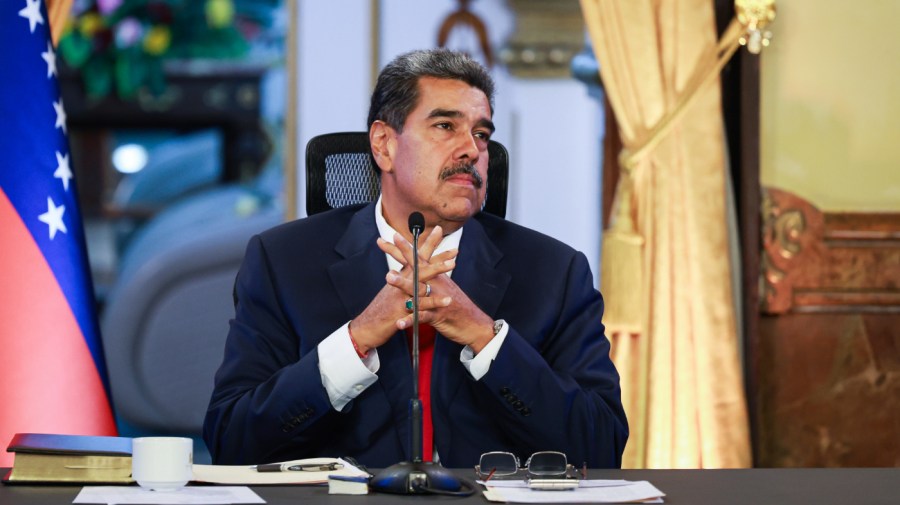
Puerto Rico’s new Republican governor is drawing attention to Venezuelan strongman Nicolás Maduro’s military threats against the U.S. island in the wake of President-elect Trump’s calls for U.S. territorial expansion.
In a letter to Trump dated Monday, Gov. Jenniffer González-Colón said Maduro’s plea for Latin American troops to invade Puerto Rico “is an open threat to the United States, our national security and stability in the region.”
González-Colón’s letter was in response to a Maduro speech on Sunday in Caracas, closing the “Global International Antifascist Festival.”
“As in the north they have an agenda of colonization, we have an agenda of liberation, and that agenda was written for us by Simón Bolívar,” said Maduro.
“The liberty of Puerto Rico is pending, and we will achieve it with Brazilian troops,” added the Venezuelan, who last Friday took his third oath of office despite widespread claims that he rigged the July presidential election results.
Puerto Rican voters have overwhelmingly chosen to keep their U.S. citizenship, granted in 1917 by an act of Congress, following the U.S. takeover of the island from Spain in the 1898 Spanish-American War.
In a non-binding plebiscite in November, nearly 70 percent of participating voters in Puerto Rico chose either statehood or free association with the United States as their preferred status for the territory, both statuses which would maintain U.S. citizenship.
And though nearly 31 percent voted for full independence, an option to maintain the current status with citizenship — a popular choice with supporters of one of the island’s traditional political parties — was not included in the plebiscite.
Maduro’s threats, though unlikely to be followed by military action, come after Trump has made direct threats to economically or militarily coerce U.S. allies to hand over control of Greenland and the Panama Canal.
The incoming U.S. president’s talk of territorial expansion comes after years of increased threats of Chinese military action in Taiwan and the South China Sea, and after three years of a Russian war of territorial expansion in Ukraine.
Trump has also irked the United States’ land neighbors, Canada and Mexico, seemingly jokingly referring to Canada as the 51st state and calling to rename the Gulf of Mexico as the Gulf of America.
But Maduro has so far been the only world leader to spin the saber-rattling trend into territorial threats against the United States.
Rep. Mario Díaz-Balart (R-Fla.) a close ally of González-Colón’s and a vocal opponent of authoritarian regimes in Latin America, blamed Maduro’s boldness on President Biden’s “weak policy of appeasement” and issued a threat to Maduro.
“… in less than a week, a new foreign policy will begin where freedom and U.S. national security interests are paramount. Friends will be treated as friends, and adversaries as adversaries,” wrote Díaz-Balart on X.
“Maduro’s days are numbered. If the dictator in Venezuela does not want to end up like other dictators Mussolini and Gaddafi, he should leave Venezuela without delay.”












